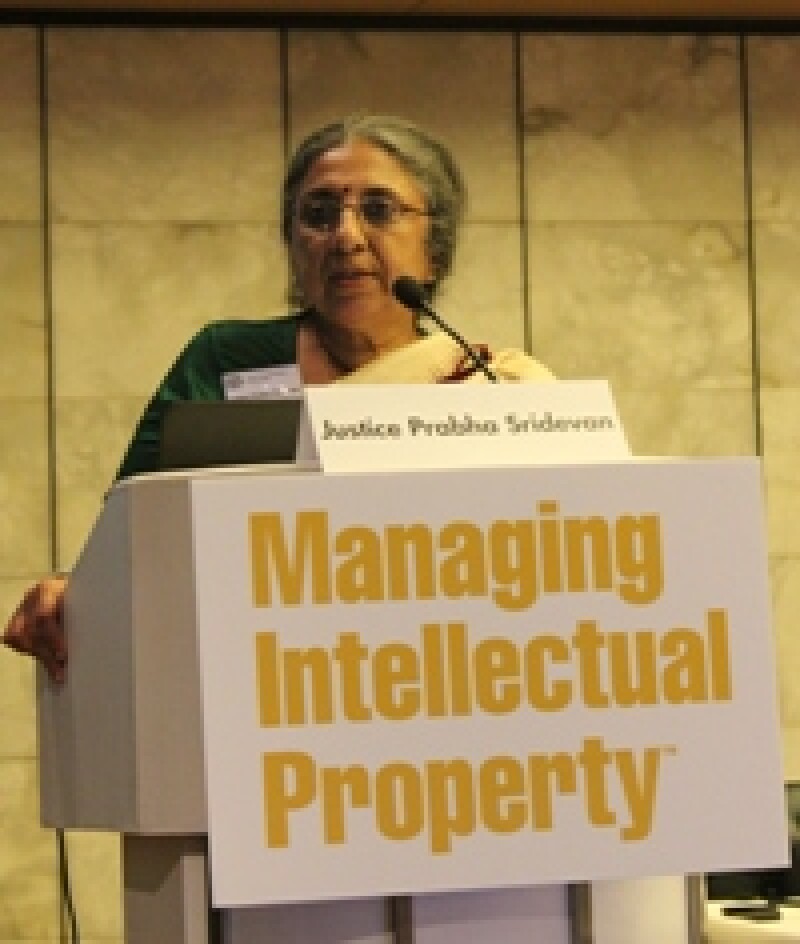Chairperson Sridevan (pictured) spoke with Managing IP last Thursday, just three days after the IPAB announced its ruling on last year’s compulsory licence grant to generic drug manufacturer Natco to produce sorafenib. Sorafenib is used to treat kidney and liver cancer.

The IPAB has not yet released its written decision, but given the importance of the holding, Sridevan devoted a seven-hour session last Monday dictating it to the open court. In it, she explained that the compulsory licence grant was proper on two of the articulated grounds: that it was not readily available to the relevant population and that it was prohibitively expensive for most Indians.
On the third issue of whether Bayer had properly worked the patent since the drug was not manufactured in India, she explained in court that there are instances where import can constitute working of a patent.
Sridevan further clarified this point in her interview. She said that a rights holder can establish that a patent was properly worked even if no manufacturing was done domestically, if it can show that it was not feasible to manufacture in India. Because the controller did not take this approach, Bayer did not present evidence addressing this issue, making it unclear whether it properly worked the patent.
The IPAB also increased the royalty rate that Natco is to pay to Bayer from 6% to 7%.
Beyond the specific legal questions of the Bayer matter, Sridevan defended compulsory licences as a tool and took issue with claims by multinationals such as Bayer that they “[weaken] the international patent system and endangers pharmaceutical research”.
“IP laws say, ‘these are the owner’s rights, and of course this means ownership and control’," she stated, and noted that like all other rights, IP rights are shaped and limited by the law. Compulsory licensing, she pointed out, is a part of that law.
She further argued: “Compulsory licences are not a denigration of the owner’s rights; the patent rights are intact until the patent is invalidated.”
Sridevan also emphasised her view that the IPAB does not simply represent rights holders, but must balance various and competing interests. She said that after her retirement in August, she will be writing a column in her native language of Tamil to explain to a non-legal audience the importance of the law and how the law functions. Her column will address subjects beyond intellectual property issues, though she said that compulsory licensing could be the topic of a future piece.
“I don’t think [most everyday Indians] really understand the compulsory licence issue. In fact, I don’t think they really know what a patent is; they just know that medicine is expensive," she explained.
Sridevan echoed similar themes in her keynote address at Managing IP’s India IP and Innovation Forum last week in New Delhi. Joking that she felt like “Daniel before the lions” addressing a room of IP practitioners, she stressed the need for a balanced approach to intellectual property. She said that while she cannot imagine a world without patented goods and copyrighted works, innovation still occurred before there was IP. Furthermore, she reminded rights owners that IP is supposed to promote public good and progress, and said that compulsory licensing is a balanced approach to achieve both.
The heavens, such as it were, are not falling, she quipped.
Despite the impact of her decisions, Sridevan also underlined the importance of judicial humility and open mindedness. She stated that even though lawyers and judges are supposed to be intelligent and thoughtful, it is impossible for anyone to know and foresee the effects of any law. This is especially true here, as the jurisprudence and effects of compulsory licensing are still developing. Still, she held that it is not wise to always second guess decisions, and that she decided the case based on what she thought was correct.
Tellingly, she ended her interview with a reference to Justice Robert Jackson’s famous observation about the United States Supreme Court: “We are not final because we are infallible, but we are infallible only because we are final.”
The decision on the fate of Natco’s compulsory licence is of course not final. Bayer has already announced that it will appeal the IPAB’s ruling.










